Author Cancels Her Upcoming Book About Fictional Characters Protesting The Soviet Union Because the Cancel Mob Harassed Her For "Lacking Empathy" By Publishing A Book Set In Russia
Just to be clear off the top before I lose everyone who clicked on this: you don't have to know a single thing or give a single shit about Elizabeth Gilbert or her (no longer) upcoming book The Snow Forest to understand anything. You don't have to know anything about books in general. Any books. If you haven't read a book since you graduated high school, you're good.
In fact you don't even need to watch the video. I'll summarize it for you right now: it's the woman who wrote "Eat, Pray, Love" saying she will be pulling her upcoming novel because over the weekend she received an "enormous, massive outpouring of reactions" from readers expressing "anger, sorrow, disappointment, and pain" about "the fact that [she] would choose to release a book into the world right now...any book, no matter what the subject of it is" and she "wants to say that [she] has heard these messages and read these messages" and "respects them," so as a result she will be "making a course correction, and removing the book from its publication schedule...it is not the time for this book to be published."
All I left out is the subject of the book. I should add that part of the "outpouring of reaction" she's talking about is the "review-bombing" her book got on Goodreads, where hundreds of people were giving her nasty 1-star reviews and savagely harrassing and attacking her personally — so much hate that it was literally removed from the platform. The publisher wasn't far behind:
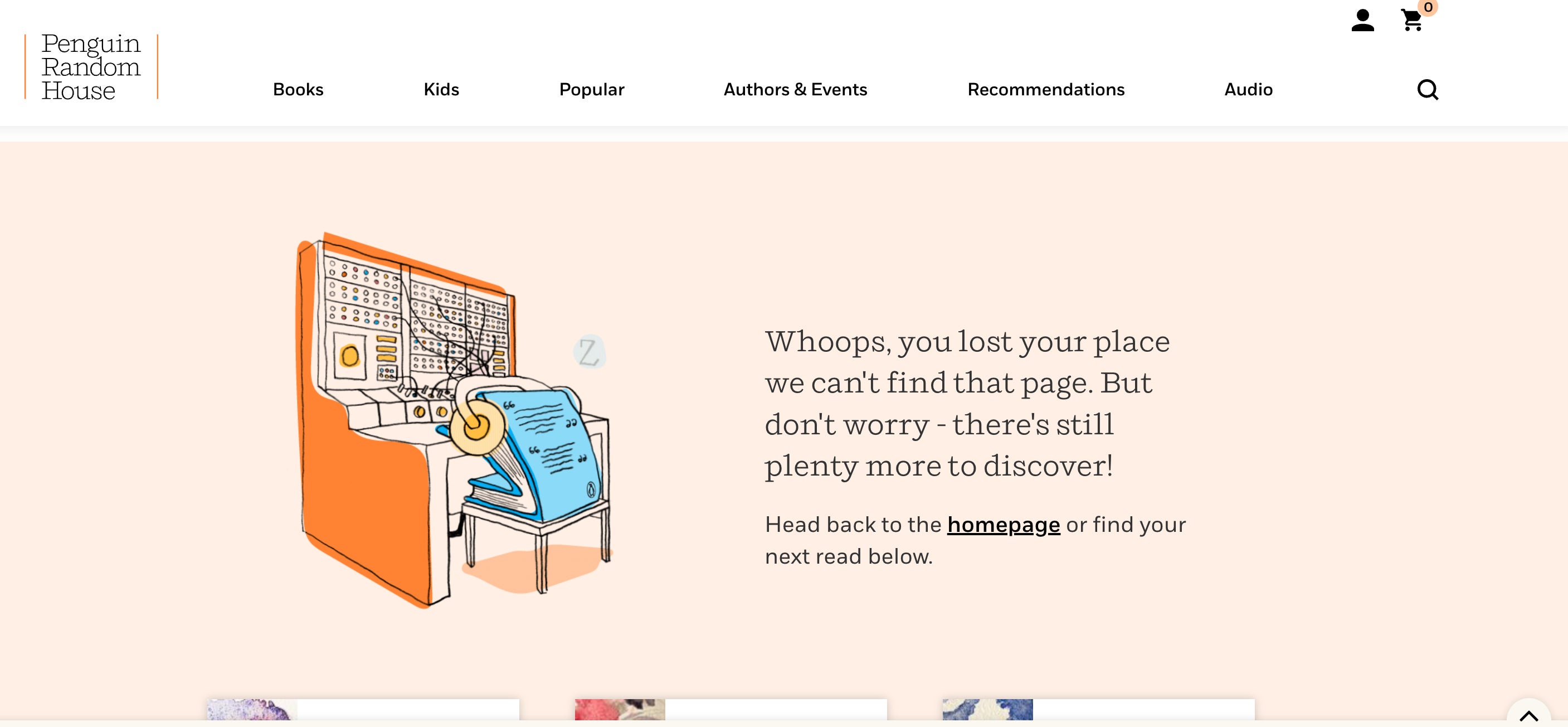
I have seen plenty of books met with outrage and review-bombs before anyone had ever even read them — I'm not sure I've seen one canceled so immediately and scrubbed so thoroughly, so quickly before. What the hell did this lady write about!
What's your guess? A defense of child trafficking? The misunderstood stigma of pedophilia? The joys of chattel slavery? What caused so much outrage that it couldn't be published, or even listed by the internet database of publications?
"But over the course of this weekend, I have received an enormous, massive outpouring of reactions and responses," she continued. "Expressing anger, sorrow, disappointment, and pain about the fact that I would choose to release a book into the world right now, any book, no matter what the subject of it is, that is set in Russia."
Okay…so it's set in Russia. In that case, it must be, what — an ode to Russian Imperialism? Some misguided expression of sympathy towards Putin's Russia, a defense of the perceived NATO threat to its borders? I guess yeah, nerves are kind of raw around that subject — not a smart time to write anything even remotely pro-Russia.
Only, in the video — before Gilbert pulled out a paper plate of her own shit to eat on camera and beg for forgiveness for her moral bankruptcy — she described the plot of the book:
"The story of a group of individuals who made a decision to remove themselves from society to resist the Soviet government and to try to defend nature against industrialization."
The book that the cancel mob succeeded in getting pulled from production and wiped off the face of the internet for being "harmful," "offensive," "disturbing," "painful," "showing a profound lack of empathy" was about people rebelling against the 1940s Soviet government.
Literally an anti-Russia book.
This thread from Pulitzer-finalist Rebecca Makkai is exactly what I wanted to write — I can't unsee it, so instead of accidentally plagiarizing it, I'll just include it here:
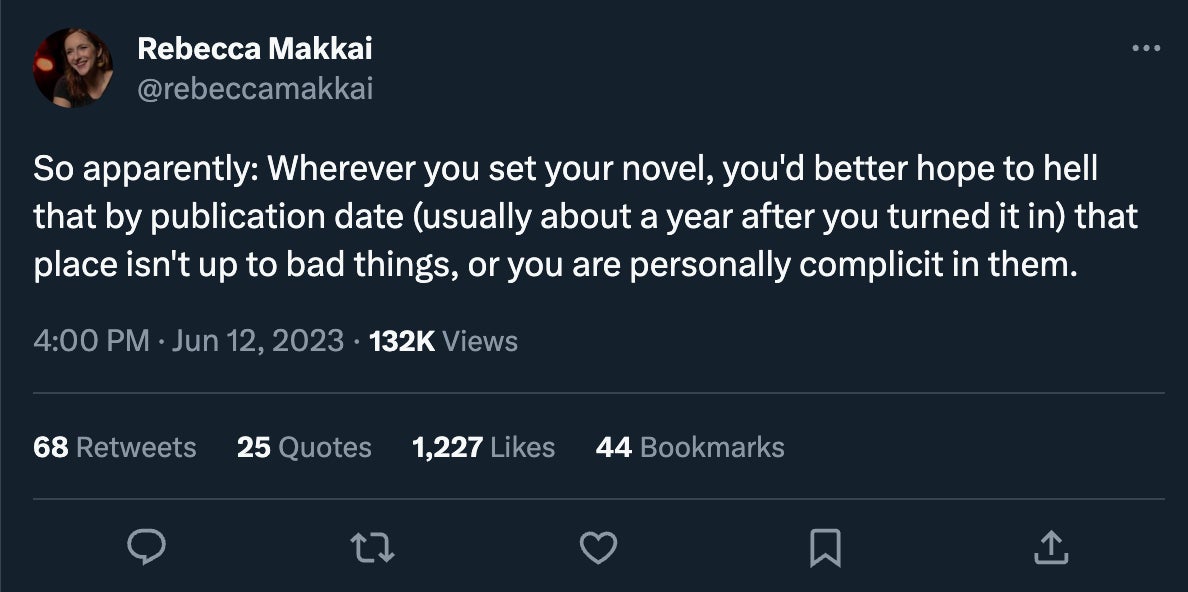
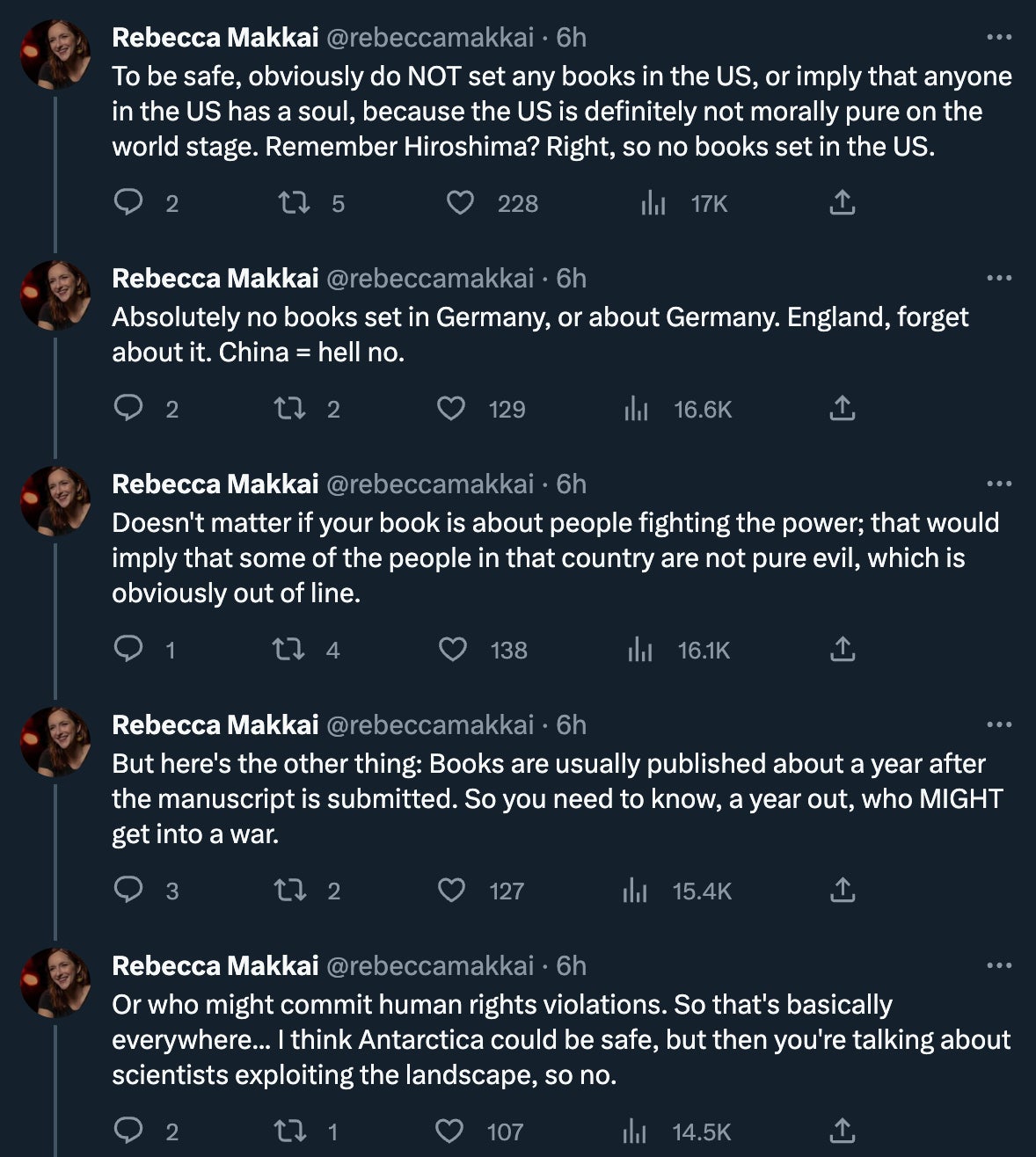
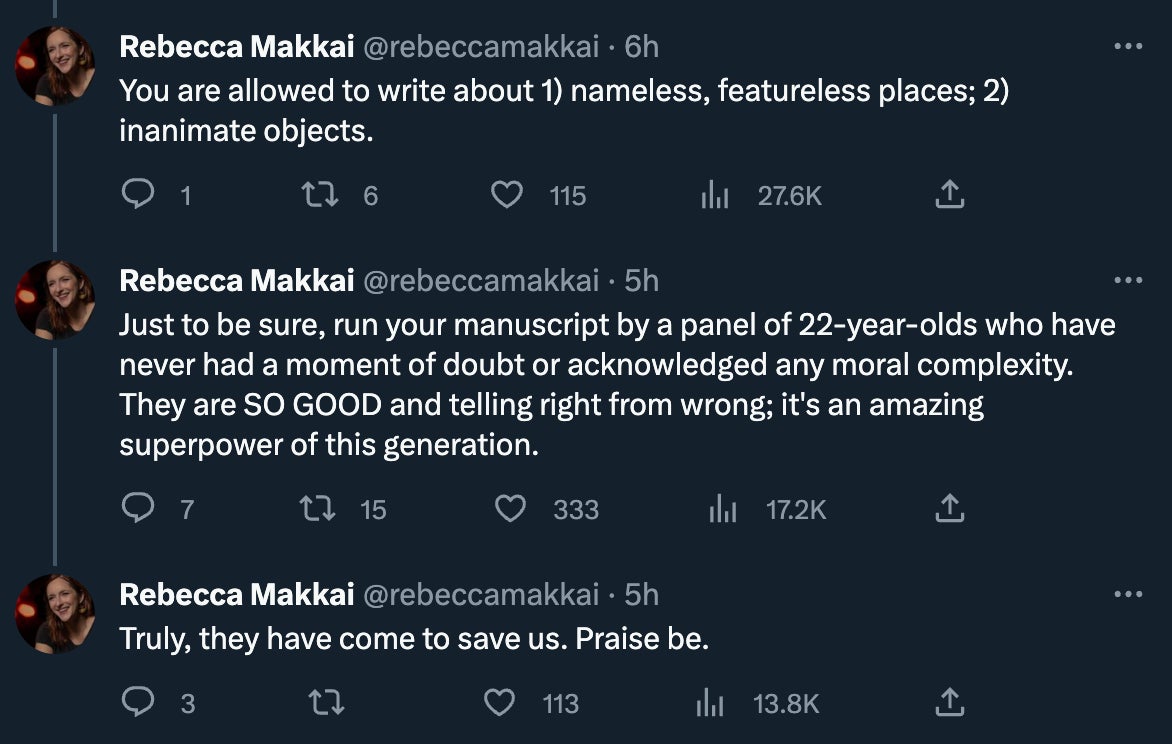
"A panel of 22-year-olds who have never had a moment of doubt or acknowledged any moral complexity, so good at telling right from wrong, an amazing superpower of this generation" — that's perfect. That is exactly who controls more and more of what we see, read, hear, listen to. Truly they have come to save us. Praise be.






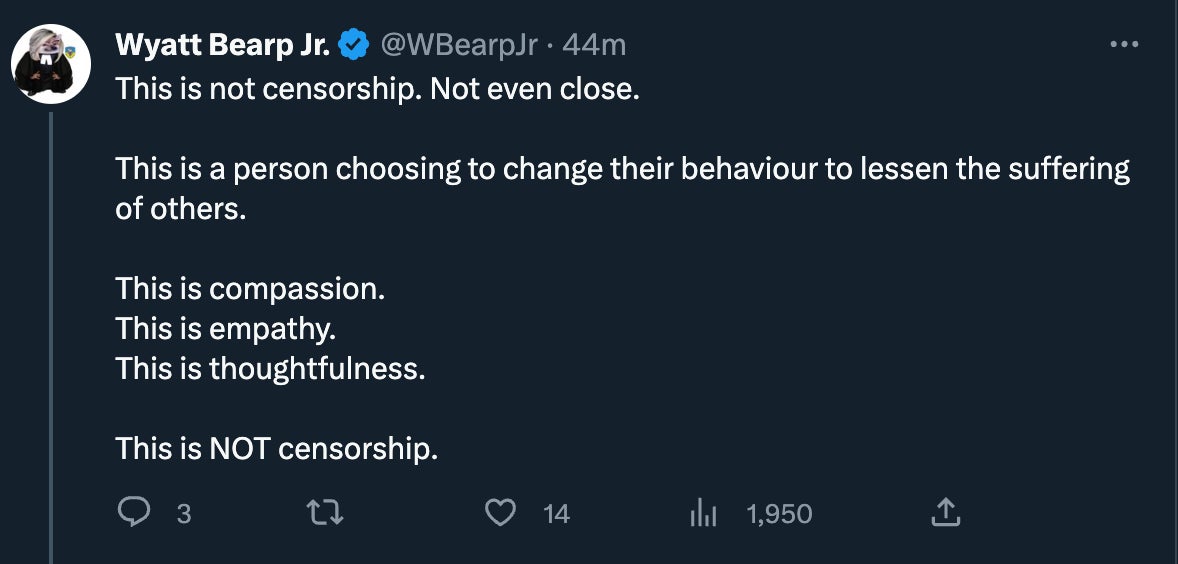
There is an overwhelming irony here, in this story involving the Soviet Union “in the middle of the last century,” that will be obvious to anyone who knows anything about art and literature in Russia during that time period. I’m not going to turn this into a history lesson but since we’re on the topic of books, let’s just take a really quick look at what the world of literature was like in the USSR right around the time that Gilbert's now-canceled book was referencing.
SO: it’s the middle of the 20th century in the Soviet Union and you want to publish a book. Great! The very first thing you will need is to make sure your membership in the Union of Soviet Writers is active and in good standing — only Union members are allowed to have the profession of “writer” and a right to publish their work.
This is totally normal: every branch of the arts has a similar organization — artists, composers, musicians, filmmakers — that oversees its members and encourages (very, very strongly encourages) them to be on the same page with the ruling communist party in terms of values, opinions etc. For literature this was the Union of Soviet Writers, open to all “loyal” Soviet writers.
How to know if you are “loyal” and “in good standing”? This is relatively easy. Do a quick check of your surroundings: are you in a Siberian forced labor camp being worked literally to death, or lying dead in the cellar of the Lubyanka with a bullet in the back of your skull? If so, you are not. (Don’t feel too bad about yourself — with roughly 1.2 million “repression” deaths under Stalin, you’re definitely not alone. Bright side, you didn’t have to starve to death like 5.5-8.7 million others.)
Now, you’re alive, you’re loyal — you’re in business. Time to decide what it is you want to write. This, too, is not difficult: there’s a Union meeting coming up, where the leaders will tell you what themes are favored by the Party this month with the world's biggest "HINT HINT" attached. This is a good starting point, but it’s only that, a starting point — a recommendation. You can, of course, write about absolutely anything that serves the interests of the victorious proletariat that you want.
There is only one requirement of the Union: what you publish must be in the style of “Socialist Realism.” Don't be embarrassed if you aren't familiar, we just completely made this up. The simplest definition of Socialist Realism is "artistic work which depicts communist values and an idealized Soviet Union without any 'complex meaning' or 'artistic interpretation.'" In other words: say something approved by the State so clearly and plainly that nobody could interpret it in any other way. A lot of people get confused with this because that's not what "realism" means at all. Or "art" for that matter. But you'll get the hang of it.
That's it, on the rules front. With those basic guidelines in mind, you’re now free to write — go ahead, put pencil to paper and let it flow. Don't be intimidated. The State, the Party, and the Union just want to set you up for success, that’s all.
What does success look like? Well, okay, let’s talk about next steps:
Once you finish your completely independent work of self-expression, the Union will read it to make sure you have strictly followed the Party’s agenda using approved expression. This “peer review” process, conducted by leaders handpicked by the government to ensure the implementation of the Party’s policies, is completely normal — and fun! Who doesn't like constructive criticism from their friends? Cooperate, and you’ll continue to receive the housing, medical care, vacations, and access to consumer goods that the Union grants/controls for its loyal members depending on how well they say what they are supposed to.
You’ll cooperate, won’t you? I mean, it’s not like we’re asking you to say anything you don’t already believe in — you are against the human suffering caused by Capitalism and its exploitation of the working class, the degrading class system and pure evil of private ownership, right? You’re pro-Utopia? Of course you are. Who would be anti-Utopia?
I should mention, just for the sake of completeness, not because it would ever be a problem. But the Writers Union hasn't just been tasked with rewarding or punishing writers depending on if they are thinking the right thoughts — they are also empowered to both publicly censure those who write Wrong and Bad things, and to sanction their arrest and execution. In fact it is their duty. Because of course, according to the Soviet Criminal Code, anything that weakens the Soviet State or defames its (very awesome and fair) social system is deemed “agitation” and/or “propaganda” and is punishable by…well, there’s no need to get into the weeds here. You’ll have the right opinions.
That’s it. That’s the pitch. Soviet literature in the mid-20th century.
Doesn’t that make you feel lucky, to live in a time and place where there is complete freedom — freedom of speech, of thought, of ideas?
Where nobody has the power to force you to think the same things they do, or to control the creative work you produce based on the opinions they approve of?
I know I do.


